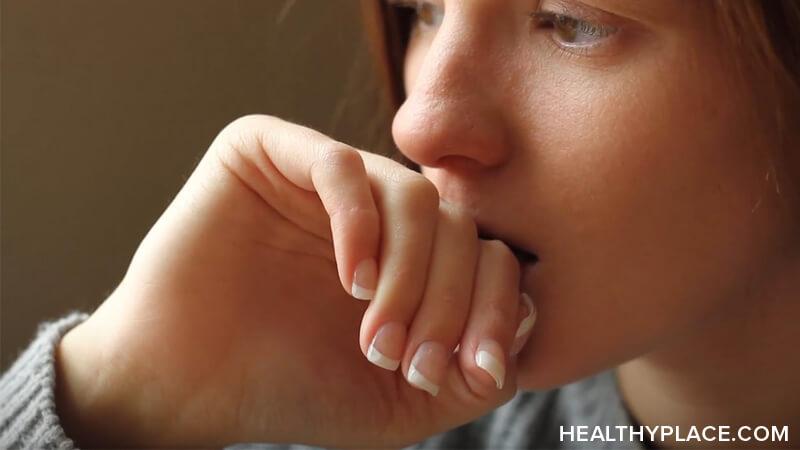Do You Feel Like an Imposter Due to Mental Health Stigma?

Does mental health stigma make you feel like an imposter? I've been thinking about this question because the more I look at mental health stigma, the more I can see it entangled in certain aspects of the mental health conversation I didn't expect. Let's take a look at imposter syndrome and mental health stigma.
What Is Imposter Syndrome?
I struggled with imposter syndrome for a long time without having a name for it. In short, imposter syndrome is feeling like a fraud and fearing that you will be caught or called out for it. This is not just related to the mental health experience, but I've seen many people with mental illness experience imposter syndrome.
I recently read So-Called Normal: A Memoir of Family, Depression, and Resilience by Mark Henick, who is well-known for mental health advocacy and, in particular, a TEDx Talk about his experience with suicide. This book touches on much of that, including how he felt like an imposter at times during his advocacy. This got me wondering: Why do those with mental health issues feel like imposters? Why have I felt like an imposter?
Mental Health Stigma's Role in Imposter Syndrome
I believe mental health stigma has a role in imposter syndrome. In addition to the side of stigma that denounces and denies illnesses of the mind, there's another side that enforces a rigid expectation of what it means to have a mental illness, who deserves help, and who is allowed to talk about it.
For many folks who talk about their mental health, this rigidity can translate to feeling like an imposter when sharing their stories when they are not cured. It's a belief that people cannot speak from a place of authority when they still have struggles. Mental health stigma's narrative dictates that it's only acceptable to share successes and experiences if they resulted in being cured of mental struggles.
Then there's another end of this spectrum. I've felt like an imposter during times when I wondered if I was sick enough to talk about my story. This leans into systematic stigma, which claims that people have to reach a certain threshold of sickness in order to be taken seriously, especially by medical professionals. I've encountered many people with mental health struggles "worse" than mine. I have seen depression so deep that it keeps people in bed, anxiety so severe that people don't leave home, skin picking so bad that it leads to hospitalization, and suicidal ideation so strong that it resulted in attempts. In comparison, my story and struggles have felt like they weren't enough. I've felt like an imposter.
Recognize Mental Health Stigma to Combat Feeling Like an Imposter
The way I see it, overcoming imposter syndrome can start with a recognition of mental health stigma. When I begin to feel like an imposter, I can take a moment to reflect and ask questions: Why do I feel like an imposter? What might influence that feeling? Does mental health stigma make me feel like an imposter?
If feeling like an imposter is a result of mental health stigma, then it's important to challenge that notion. I have to remind myself that mental health struggles are not a competition and that my struggles are just as valid as anyone else's, even if they look different.
The journey to mental wellness isn't always easy, but it's possible to retrain those imposter syndrome-related thoughts and combat mental health stigma in the process.
APA Reference
Barton, L.
(2021, February 8). Do You Feel Like an Imposter Due to Mental Health Stigma?, HealthyPlace. Retrieved
on 2025, November 28 from https://www.healthyplace.com/blogs/survivingmentalhealthstigma/2021/2/do-you-feel-like-an-imposter-due-to-mental-health-stigma
Author: Laura A. Barton
I've heard of Imposter Syndrome discussed widely in professional circles around different types of work, but in relation to mental health makes so much sense. It's so important that conversations like these are openly had and shared because as soon as you read it you think "that makes so much sense" or "I can certainly relate to that". None of us need to feel like an imposter on top of our mental health journey. Beautiful share.
Thank you so much, Lizanne! Having that relatability is one of the things I was aiming for on top of having an informative discussion on this topic. Like I said in the piece, I've seen tons of people with mental health struggles mention feeling like imposters, so it's a good topic to think on when we're looking at our overall mental health experience and how we can move forward in recovery. I hope that this helps shed light on it for people.
